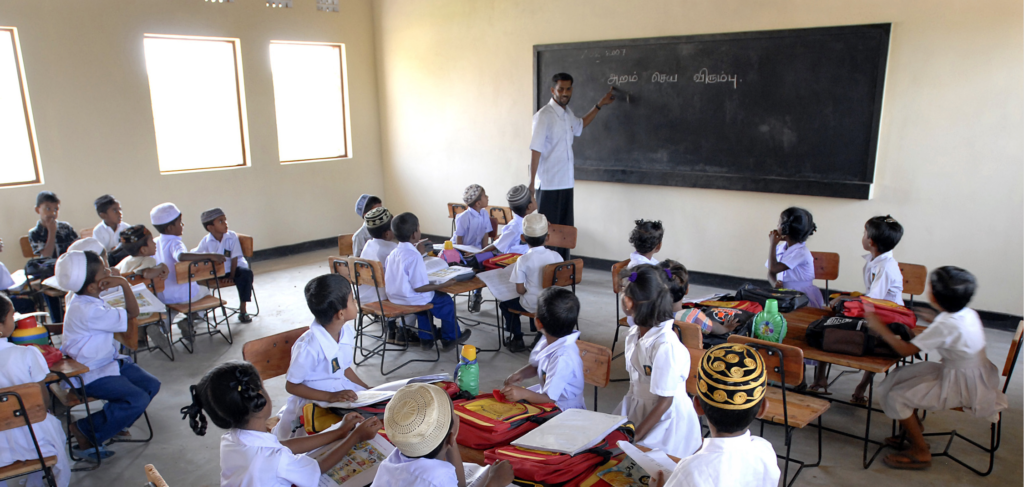Featured image courtesy IRIN News
Laksiri Fernando’s prompt response of 6th June to mine reveals that he has not read my article carefully. It is precisely to avoid needless finger pointing that I suggested that the Sinhalese should take the initiative in correcting caste prejudice within their ethnic group and that the Tamils should do the same in respect of caste prejudice within their ethnic group, and that they should jointly address issues common to both ethnic groups.
The trilingual policy that I envisage is to teach both Sinhalese and Tamil to every child from Primary School to at least Mid Secondary School, and to teach English throughout Secondary School to everyone. Every district should have at least one school that teaches in the Sinhalese, Tamil and English medium from Mid Secondary School upwards, and students should have the option of choosing their medium of instruction (changing schools if necessary) by the time they enter Upper Secondary School or even later. Tertiary education should be available in all three language media.
Regarding urban rural disparities, how can district quotas be a cure for it? District quotas have a terrible impact on the prospects of children from deprived families attending deprived schools in urban areas. Do they not have a right to compete on equal terms to enter university? Why should they be discriminated against as against privileged children from privileged schools in rural areas? Affirmative Action or Reverse Discrimination is possible only if disadvantages could be measured objectively. It would be a mockery of Affirmative Action/Reverse Discrimination if children from low income areas attending school are deprived of university education simply because there are very good schools in the neighbourhood of those low income areas to which these children are not admitted. That would be adding insult to injury. Are children growing up in dirty, over crowded, noisy and violent urban areas privileged in relation to those growing up in rural areas? It would be criminal to take in a boy from Trinity College in preference to a boy from such an environment with a better score purely because the cutoff point in Kandy is lower than the cutoff point in Colombo. This would be the reverse of Affirmative Action/Reverse Discrimination. A child growing up in urban low income housing in such circumstances is underprivileged even in relation to a poor child growing up in a hut in a rural area.
Regarding socio economic status how reliably can this be measured? Many rich “mudalalis” are not income tax payers because they have no declared income. In contrast, many minor employees in the organised sector are income tax payers because there is no way in which they can hide their income. It would be a good thing to deprive the rich from Affirmative Action or Reverse Discrimination benefits but this cannot be based on income tax returns.
Readers who found this article enlightening should read “Lost in Translation: Shortfalls in the implementation of Sri Lanka’s language policy” and “Education and empowerment: The journey of Sri Lankan refugees.”
